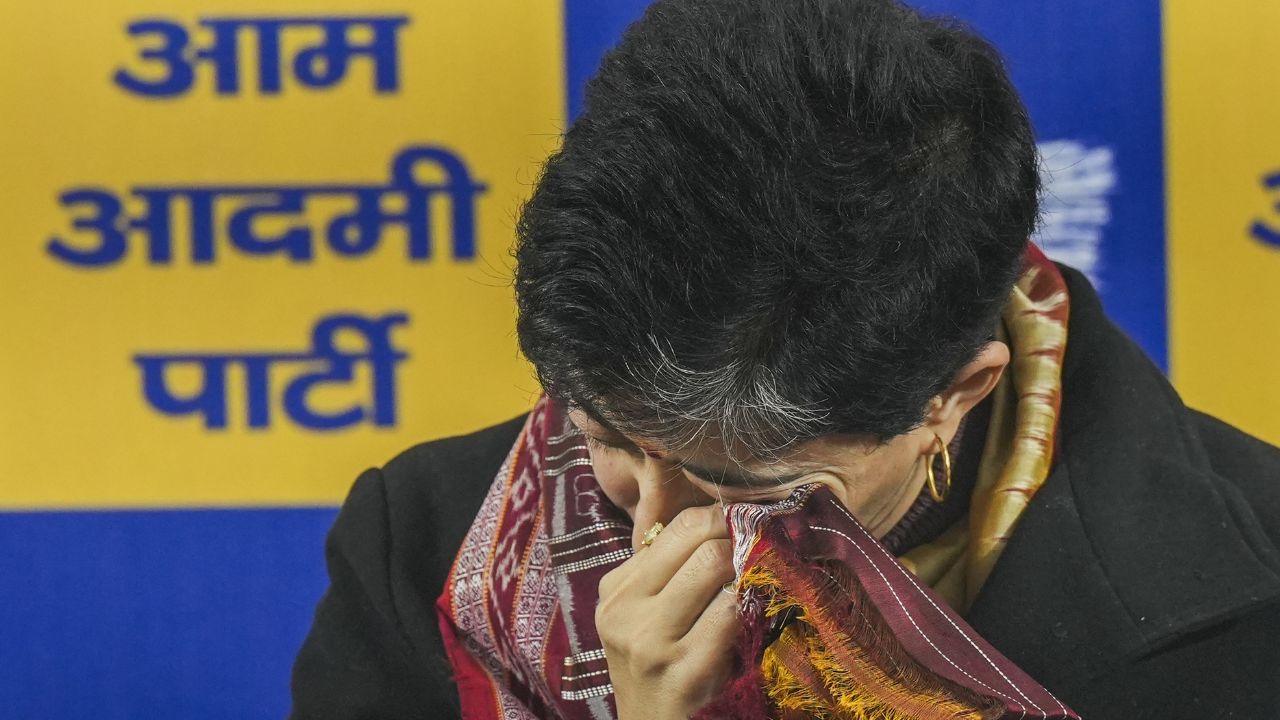 |
|
The ongoing political feud between the Delhi state government and the central government has taken a dramatic turn with the second eviction of Delhi Chief Minister Atishi from her official residence within a span of three months. This latest incident, occurring just days before the announcement of upcoming elections, has ignited a firestorm of controversy, with Atishi vehemently accusing the central government of politically motivated actions aimed at undermining her and her administration. The situation underscores the deep-seated tensions between the ruling Aam Aadmi Party (AAP) and the Bharatiya Janata Party (BJP)-led central government, and highlights the increasingly acrimonious nature of Indian politics. The timing of the eviction, so close to the elections, suggests a deliberate attempt to destabilize the AAP's campaign and potentially influence the outcome of the upcoming polls. This is a tactic commonly employed in political landscapes where power dynamics are heavily contested.
The specifics of the eviction revolve around the withdrawal of Bungalow No. 6 at Flag Staff Road, initially allotted to Atishi on October 11, 2024. While her representative accepted the offer on October 23, 2024, Atishi never physically occupied the property. The Delhi Public Works Department (PWD), citing ongoing CBI investigations and a CAG special audit of the bungalow, along with the fact that the bungalow was not specifically designated for the Chief Minister, rescinded the allotment. The PWD argued that Atishi failed to take possession within the stipulated five working days of the Habitability Certificate issuance, thus triggering the automatic cancellation of the allocation. However, Atishi contends that the reasons provided are merely a pretext for a politically motivated move designed to harass and discredit her. This explanation is supported by the timing of the event, only days before a significant election.
Atishi's emotional response to the eviction underscores the gravity of the situation and the perceived injustice. She publicly accused the central government of repeatedly ‘throwing her and her family out of their homes,’ framing the situation as a direct attack on her work and her ability to serve the people of Delhi. This narrative plays directly into the existing political narrative that paints the BJP as actively working to undermine AAP's agenda and Atishi's leadership in particular. This narrative is likely to resonate strongly with her supporters, solidifying her image as a victim of political persecution. This portrayal of events and the strong emotional response are integral components in the current political discourse, highlighting the complexities of power dynamics in India’s political landscape and the role that personal attacks play in campaigning.
The PWD’s offer of alternative residences, including Bungalow No. 2 at 8 Raj Niwas Lane and Bungalow No. 115 at Ansari Road, does little to mitigate the political damage. The offer is seen as an attempt to defuse the situation but, ironically, also further fuels the perception of harassment. The central government's actions, regardless of the procedural justifications provided, are perceived as a blatant attempt to exert political pressure and control. The situation highlights the vulnerability of political figures to bureaucratic actions, especially when those actions are perceived as politically motivated. This incident reinforces the widespread concern about the erosion of institutional neutrality in the political sphere. It also brings into question the fairness of the process used in allocation and reallocation of government accommodations.
This incident is likely to further polarize the political climate in Delhi and significantly impact the upcoming elections. Atishi’s public statements, promising to continue her work for the women of Delhi despite these setbacks, show her determination to fight back. However, the ongoing controversy surrounding her residency is almost certainly going to be a major talking point during the election campaign. The opposition party, the BJP, will likely exploit this to further their narrative against the AAP, while AAP will use it to garner sympathy and rally its base. The controversy underscores the complex interplay of bureaucratic processes, political maneuvering, and public perception in the Indian political system. The outcome of the elections will certainly reflect, to some degree, the electorate's response to this highly charged event and its implications.
Source: 'Centre Has Thrown Me Out Of CM Residence For Second Time In 3 Months': Claims Delhi CM Atishi
